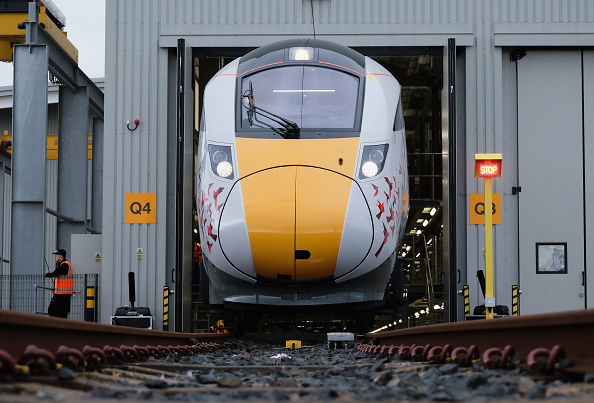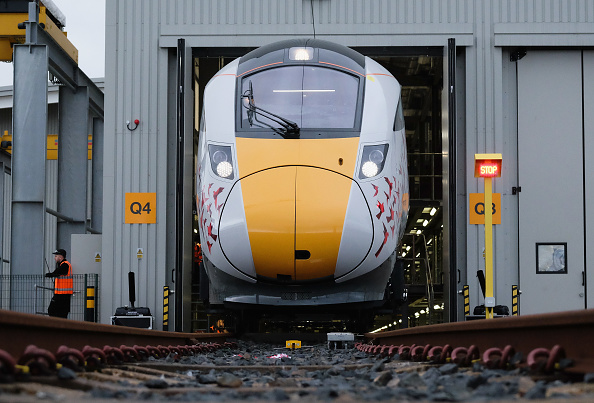
Hitachi’s UK operation has taken a multimillion pound writedown on the value of its plant in County Durham, as concerns mount over the future of the UK’s train manufacturing sector.
In its latest company accounts, Hitachi revealed a £64.8m impairment to the value of its plant in Newton Aycliffe, citing issues including a production gap and inflation.
Britain’s train manufacturers are reeling from a slowdown in rolling stock orders. Low passenger demand and increasing home working since the pandemic have decimated rail operator’s finances across the country, restricting orderbooks.
The French giant Alstom is currently consulting on up to 1,300 job cuts at its Litchurch Lane factory in Derby, which has no confirmed workload beyond the first quarter of 2024.
The company’s chief executive warned this week that suppliers of the plant were already facing insolvency, as they await clarity from government before work stops in six weeks. The issues have been made worse by the government’s decision to axe the Northern Leg of HS2.
Hitachi’s £82m plant in the North East delivers trains to Avanti West Coast and East Midlands Railway and was the group’s first European factory.
Its accounts noted that the writedown should “not be interpreted that Newton Aycliffe is entering into a period of cessation” and would not have “any operational impact on its ability to deliver current or future orders.”
Industry warnings over future job losses have grown amid the deep cuts at Alstom. The Railway Industry Association (RIA), the trade body representing the UK rail supply community, has called for clarity over the time frame of future orders.
Speaking to the Transport Select Committee last week, RIA technical director David Clarke, said: “We need a visible and smoother pipeline for new and refurbished rolling stock, to provide clarity for rail suppliers and protect UK rail manufacturing… in the short to medium term.”
Hitachi was approached for comment. In a statement published in the Financial Times, who first reported the writedown, the company said: “We continue work with industry stakeholders and the UK government on opportunities surrounding new rolling stock orders such that we can continue to support and further enhance our investments here in the UK.”
The Department for Transport was approached for comment.




